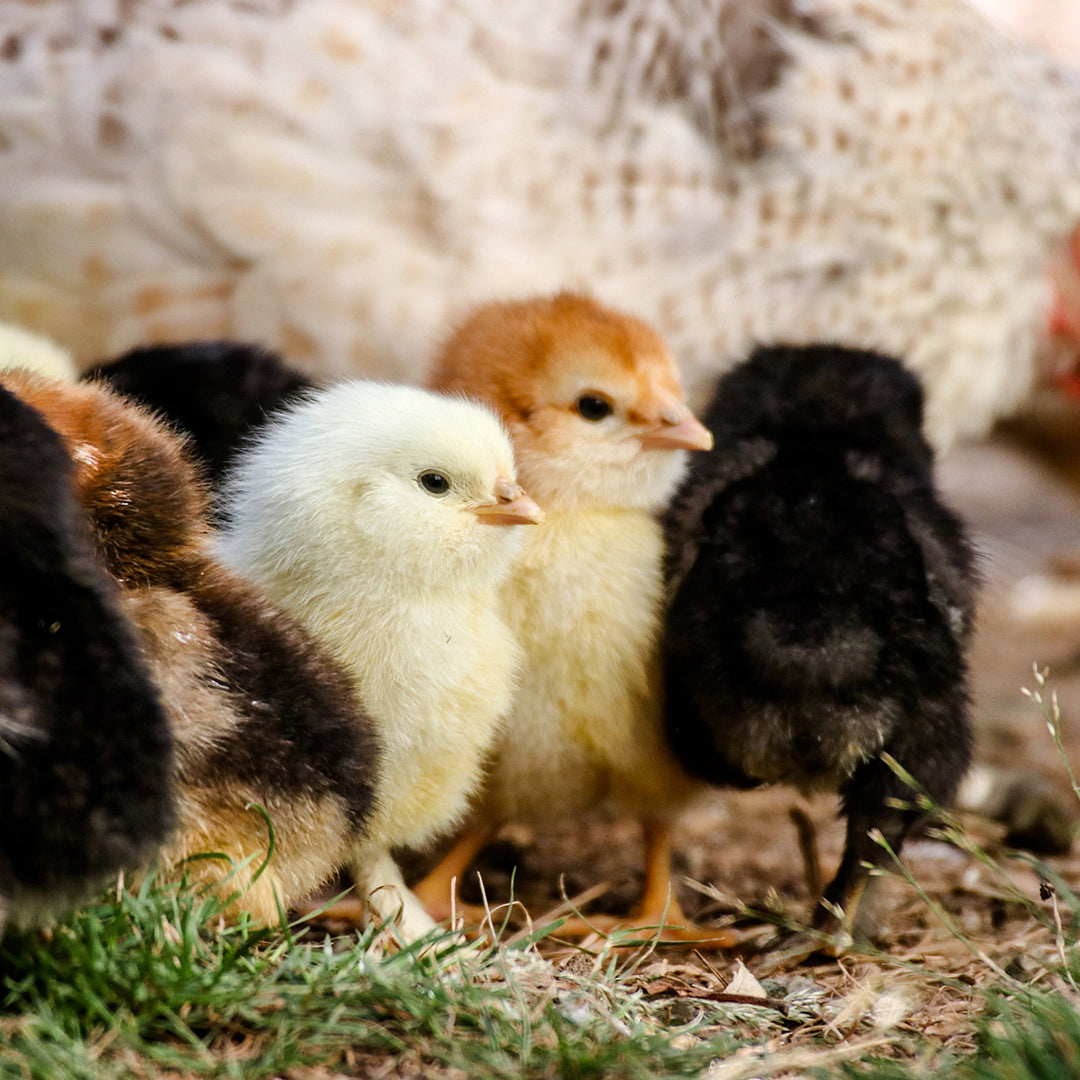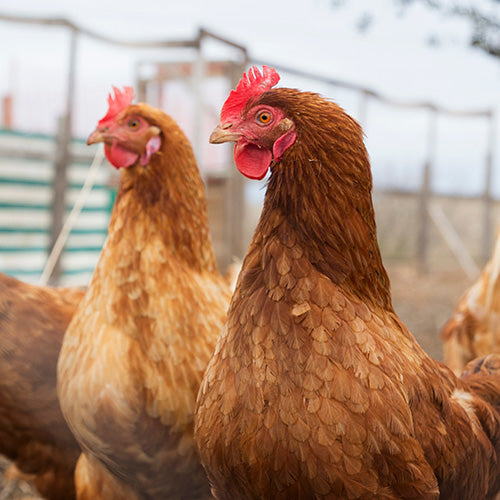
Are chickens right for you?
Walk into your local farm store in the spring, and you will likely hear the chirping of sweet little chicks. With their tiny beaks and fluffy down, it can be tempting to take a few home. But those cute little chirpers turn into full-grown chickens that will be around for 3-7 years and require daily care. Before you dive into the rewarding commitment that is raising chickens, ask yourself these questions.
Is Chicken Ownership Restricted Where I Live?
While chickens can be great for those with minimal acreage, chickens aren’t allowed everywhere. Check your local city ordinances to make sure you can have them where you live. Some areas require a permit, maybe even written permission from your neighbors. You may also run into limits on the number of birds you can have and whether or not roosters are allowed.
Do I Have The Budget?
While they may save you money on eggs down the line, there are numerous upfront and recurring costs to take into account when considering budget. Chicks themselves require some specialized equipment, such as a brooder, heat lamps, quality feed, smaller feeders and waterers, and electrolyte and probiotic supplements to get them started strong. Then, you’ll need to make sure you’re well equipped to care for them as adults with a coop, full-size feeders and waters, and more. Here is a checklist of things you’ll need before bringing home baby chicks.
Do I Have The Space?
For laying hens, a minimum of 3-4 square feet per bird of indoor space and 10 square feet per bird of outdoor is recommended. If you live in a cold climate where it’s not feasible for your flock to go outside every day in the winter, give them even more indoor space. Adequate space is very important for preventing behavioral issues like pecking. Within your coop, it’s important to have good circulation with no drafts to keep your birds comfortable and healthy year-round.
Are My Egg-spectations Realistic?
If you’re expecting to have farm fresh eggs every day, right away, forever, you may want to rethink your expectations. Hens start producing eggs when they are 18-22 weeks old – and that’s if they receive optimal nutrition, housing and management. If you bring your chicks home mid-March, that means you can expect to start collecting eggs toward the end of July.
Chickens will slow down their egg production as the days get shorter in the winter, and some may even stop producing for the rest of the season. Egg production also slows as chickens age. Hens usually reach their peak production in their first year laying, producing about 1 egg per day. In year two, you can expect your hens to lay about 80% of what she laid in her first year. Each year after that, egg production typically declines by about 10%.1
Who Will Take Care of Them When I’m Away?
Chickens require daily care, including feeding, watering and cleaning of the coop. Unfortunately, there aren’t chicken boarding facilities you can drop them off at like you can with your dogs when you go on vacation. If you’re a globetrotter who’s gone a lot, chickens may not be for you unless you have a trusted friend who can care for them while you’re away. Chickens are great company for homebodies who are around to manage them each day.
Could I Use Some Comedy, Companionship and Cuteness?
While there are various costs and responsibilities that come with raising chickens, the laughs, company and cuteness they provide make it worth it. And, of course, nothing beats starting your day with an omelet made with eggs from your very own flock.
If you decide to take the leap and bring chicks home this spring, check out our five top tips for raising healthy chickens and browse our other chick-related resources.
1 J.P. Jacob, H.R. Wilson, R.D. Miles, G. D. Butcher, and F.B. Mather. “Factors Affecting Egg Production in Backyard Chicken Flocks.” University of Florida-Extension. http://edis.ifas.ufl.edu/ps029.
Find Solutions for Your Animals
-

Whether housed in a coop or free ranging on your farm, your birds are exposed to multiple threats every day that could cause illness or impact their well-being. Now there’s a way to be more proactive with regular support for...
-

You’ve raised your chicks to adulthood and now they’re fully feathered hens. Way to go! Now, you get to enjoy their eggs and companionship for years to come. To maximize their life, support their production potential and kee...





